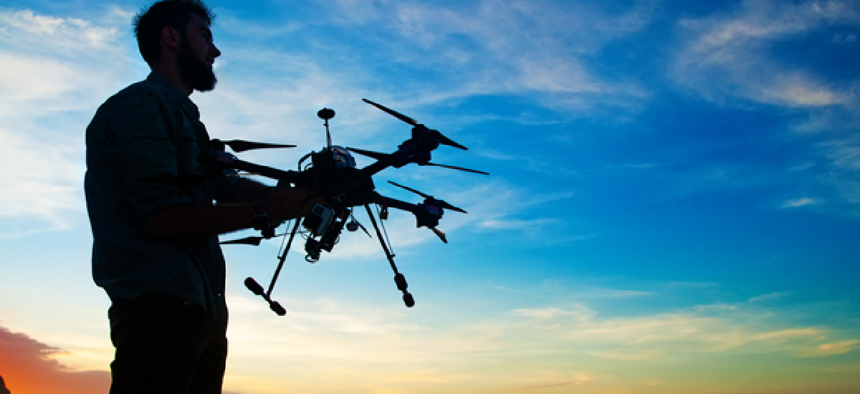What's ahead for the FAA’s drone registry?

Enforcement of the registration and data security are among concerns voiced over the Federal Aviation Administration’s site to register unmanned aerial systems.
While the Federal Aviation Administration's new rule requiring individuals to register their unmanned aerial systems has been viewed by some as an important step in the regulation and eventual integration of the aircraft, there are still many questions surrounding the online registry, which went live Dec. 21.
For one, anytime individuals are asked to provide personal information, security of that data is incumbent on the database provider. A spokesperson from the FAA told GCN in an email that the new UAS registration site was developed by a private sector contractor and will be located in the cloud but declined to comment on cybersecurity risks, stating the agency does not “discuss cybersecurity measure[s].”
When constructing databases such as the new UAS registry, segmentation of data is important, said Sol Cates, chief security officer at Vormetric. Cates said that a data repository should not be kept where someone could also interact with other datasets. The FAA has said that the UAS database will be searchable only by using the assigned unique identification number, according to a report by The Hill. The search will produce the name and address of the user, but the public will not be able to search by a user’s name or address.
Enforcement of the registry process has also concerned enthusiasts and interest groups. It is still unclear how the FAA will enforce the rule requiring drone owners to register their devices. There were already several hundred thousand drones sold before the 2015 holidays, with “an estimated additional million” purchased for gifts in the runup to Christmas, said Zain Naboulsi, co-founder of Drone Labs. Naboulsi said he does not believe people will bother to register their drones. When people buy a microwave or any other appliance, he asked, how many “actually sit down and register the damn thing? And that’s free. Add a five buck registration fee, and you’ve got a real problem on your hands.”
Naboulsi said there should be harsh punishments for those who violate airspace safety laws. “The key path is through the punishment,” he said. “If somebody uses a drone and violates the law accidentally, there needs to be a token penalty.… But if somebody does it intentionally, you need to bring the hammer down so hard to build case law so that people are absolutely deterred,” Naboulsi said he doesn’t believe drone registration is enough to ensure compliance with the law, “but a real hard-core penalty that’s actually enforced will do it.”
The FAA maintains that simple failure to register one’s device could be enough to prompt a penalty that many would consider hard core: regulatory and criminal sanctions with civil penalties up to $27,500 and criminal penalties to include fines of up to $250,000 and/or imprisonment for up to three years.
“Since many drone owners are new to aviation, our first step is educating the public about the importance of registration,” the FAA spokesperson said. "We will continue to do outreach and encourage people who have registered their drones to ask their friends and family to do the same.”
Another concern for the drone registration system could be web traffic overwhelming the site as the Jan. 20 deadline approaches. The site went down briefly on the day it launched, though service was quickly restored. With drones among the more popular holiday gifts, and the fact the FAA is waiving the $5 registration fee if individuals register before the deadline, there is the potential for overwhelming the system.





